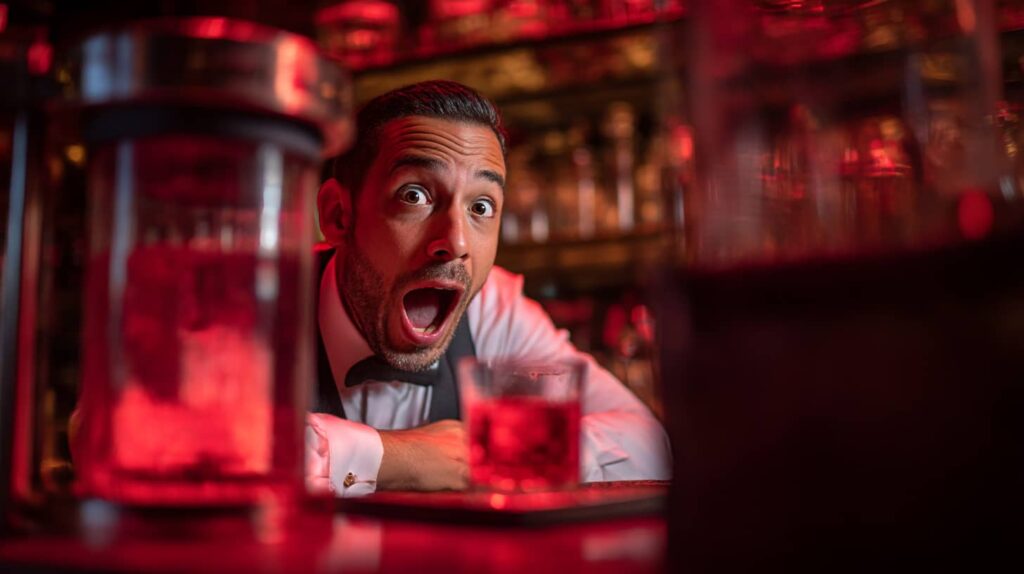"Cocktail machines? No way!" These words echoed through the restaurant as the salesman finished his presentation. The restaurateur was a traditional bartender advocate, a romantic of handmade drinks. Six months later, he owns five cocktail machines and swears to other restaurateurs: "I should have done this much earlier."
The story of a complete turnaround.
The fundamental resistance
What makes an experienced restaurateur reject everything he doesn't know? Fear of change, pride in tradition, scepticism towards technology.
His arguments at the time:
- "Guests want human service, not robots"
- "Handmade cocktails have soul, machines don't"
- "My bartenders are artists, not factory workers"
- "Quality comes from experience, not automation"
Typical reaction of a traditionalist. Understandable, but short-sighted.
The moment of doubt
Three months after the first presentation came the reality shock. His best bartender spontaneously quit. The second became ill. The cocktail menu had to be cancelled - in the middle of the peak season.
The bitter outcome of a week without cocktails:
- Loss of sales: 4,200 euros
- Disappointed regulars: 23 difficult conversations
- Online ratings: From 4.3 to 3.8 stars
- Emergency bartender: 180 euros per shift
Suddenly, machines no longer seemed so bad.
The hesitant approach
"Can you show me everything again?" The call came on a Tuesday, after another staff-free night. This time, the demonstration didn't take place in the showroom, but in his own restaurant.
The first live demonstration:
5:30 pm - Set up the test machine in 20 minutes
6:00 pm - First cocktails for sceptical regulars
6:15 pm - Stunned reactions: "Tastes better than yesterday"
19:00 - Queue forms, guests are curious
20:30 - The restaurateur tastes it himself: "That can't be..."
His comment: "The mojito was perfect. Exactly how I want it. Every single day."
The breakthrough comes gradually
The test phase was to last two weeks. After three days, the decision was made. Not because of the technology, but because of the guests' reactions.
Surprising findings:
Guest feedback was overwhelmingly positive:
- "Consistent quality at last!"
- "Fast service, perfect flavour"
- "Interesting technology, great presentation"
- "Is this the future?"
Staff were relieved:
- Less stress at peak times
- More time for guest care
- No more cocktail expertise required
- More relaxed working atmosphere
The figures speak for themselves:
- Cocktail sales: +340% in one week
- Average bill: +28 euros per guest
- Personal stress level: -75% (felt)
- Guest complaints: Zero
The total turnaround
The biggest sceptic became the most enthusiastic supporter. The restaurateur didn't just buy one machine - he ordered three more for his other locations.
His new philosophy: "I was an idiot. I confused romance with reality. Guests want perfect drinks, not perfect stories about their creation."
The transformation of its business strategy:
| Before | Afterwards |
|---|---|
| 3 bartenders required | 1 service employee is enough |
| Inconsistent quality | Mathematical perfection |
| 45 min Cocktail familiarisation | 5 min system training |
| Staff shortages = catastrophe | Staff absences = no matter |
| Cocktails only in the evening | Cocktails available 24/7 |
The evangelist is born
Today, he talks about his experience with every catering colleague. His mission: to save others from his mistakes.
His standard speech: "I was the biggest sceptic in the industry. Today I own five cocktail machines and would never go back. Save yourselves the learning curve - I've already been through it."
His advice to other sceptics:
- "Test it yourself" - Theory doesn't help, only practice convinces
- "Listen to your guests" - You want quality, not nostalgia
- "Calculate honestly" - Labour costs vs. machine costs
- "Think long-term" - 5 years perspective, not 5 weeks
The biggest lesson
His most important realisation: "I was afraid of the wrong thing. I thought machines would take the soul of my restaurant. In fact, they have given me back my life."
What he says to other sceptics: "Your doubts are justified. I had the same. But let reality convince you, not your prejudices. A demo costs nothing - except your pride."
The moral of the story
Sometimes our strongest beliefs are our biggest obstacles. The bravest step is often the one from sceptic to experimenter.
From "Never in my life" to "I should have done it much earlier" - in just six months.
The question is not whether you will change your mind. The question is: how much longer will you wait?
